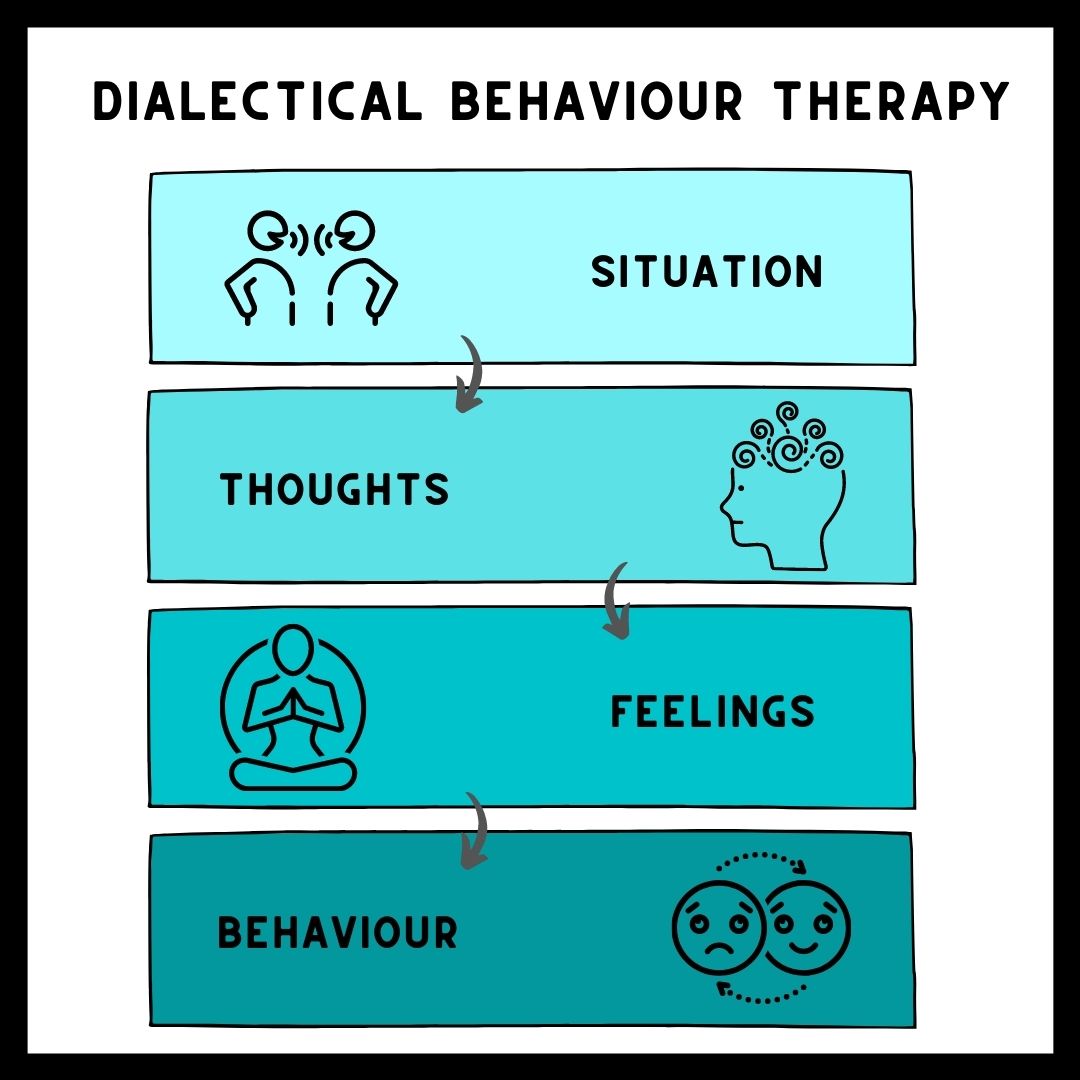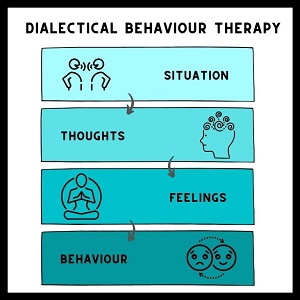
Direct go to
What is Dialectical Behaviour Therapy or DBT?
DBT was developed initially for borderline personality disorder (BPD) specifically for repeated self-harm in individuals with BPD. It is a form of cognitive-behavioral therapy

Who is suitable for this therapy?
- People with Borderline Personality Disorder
- Any other mental health disorder, which has under-control and over-control of emotions, maladaptive thoughts and behavioural patterns.
What are the benefits of this therapy?
The therapy focuses on instability in the regulation of emotions and behavior, impulse control, instability in interpersonal relationships and self-image., constant feeling of emptiness, etc.
The overall goal is to help individuals to alter their behavior, emotions, thoughts, and interaction patterns with others to decrease the associated problems in everyday life.
What shall I learn from DBT?
The therapy mainly concentrates on teaching skills like
- Managing difficult and extreme emotions, mindfulness of current emotions, and changing emotional responses – by Checking facts and opposite actions.
- Reality acceptance skills
- Skills to stay mindful, and appear confident.
- Skills to be gentle and calm during relationship distress
- Skills for distress tolerance when the crisis is present and how to stay in clear mind.
What are the modes of availing of DBT?
Therapy can be done as face-to-face consultation or via Tele or video consultation.
How many DBT sessions should one take?
Sessions are individually tailored or customized, depending on the intensity and severity of the symptoms. The sessions can be taken for 3 to 6 months with an interval of two weeks between sessions. The standard DBT that has the best results is done for one year.
Disclaimer: This website may contain general information relating to various medical conditions and their treatment. Such information is provided for informational purposes only and is not meant to be a substitute for the advice provided by a doctor or other qualified healthcare professionals. Readers should not use the information contained herein for diagnosing a health or fitness problem or disease. Readers should always consult with a doctor or other healthcare professional for medical advice or information about diagnosis and treatment.
